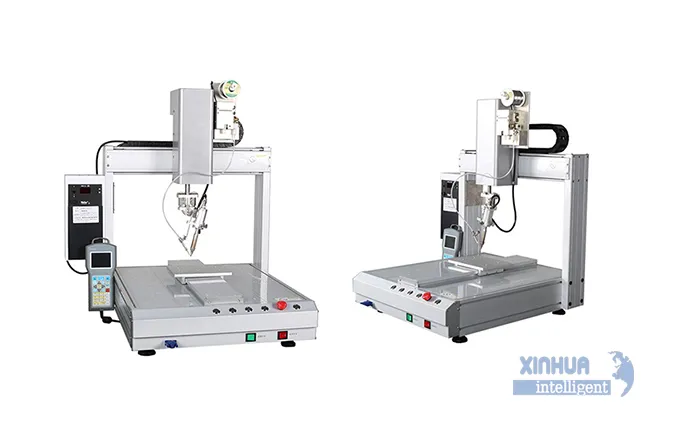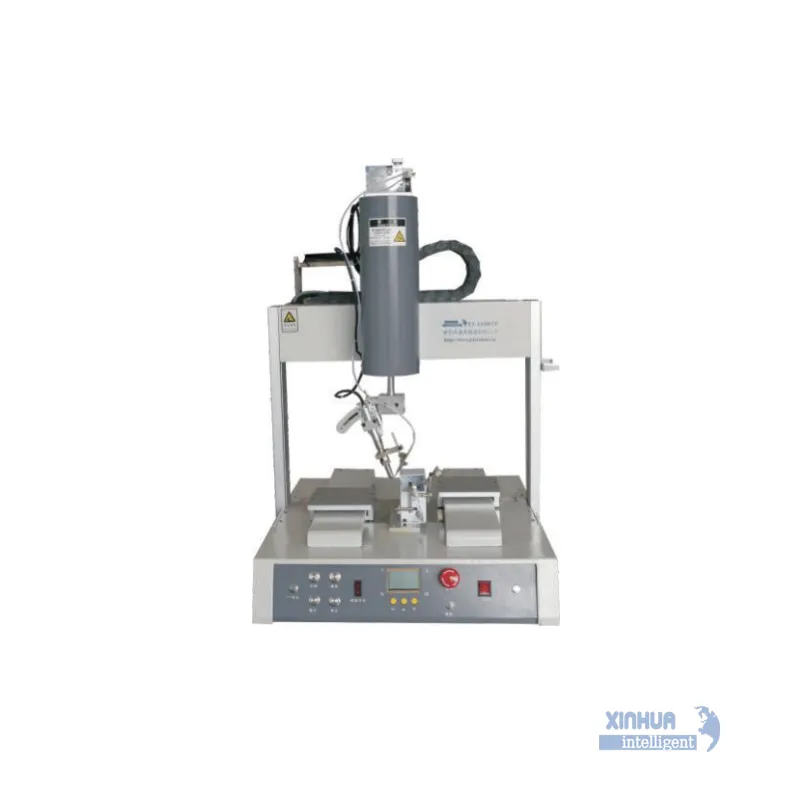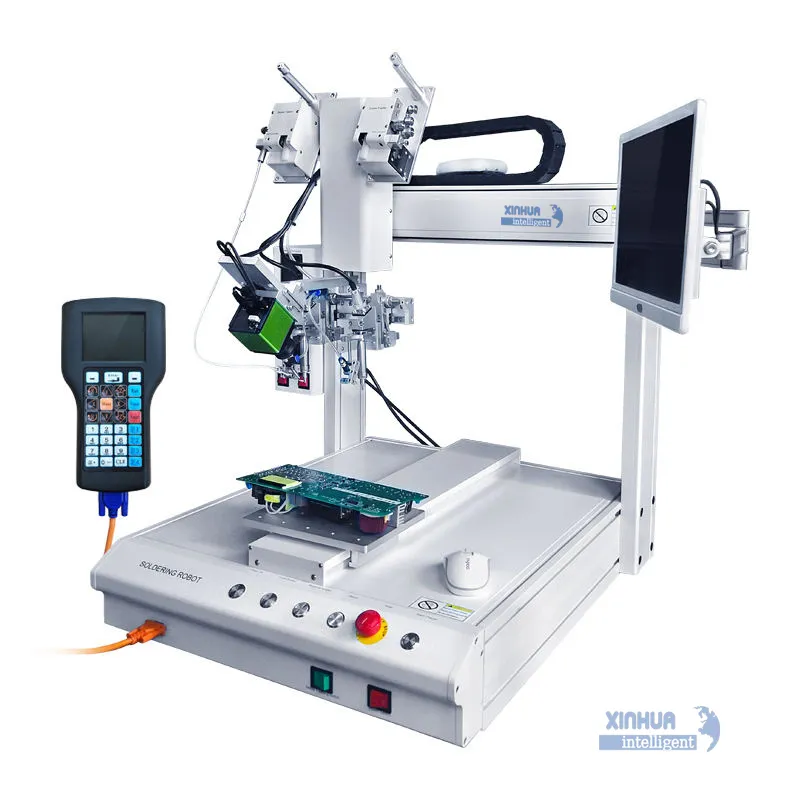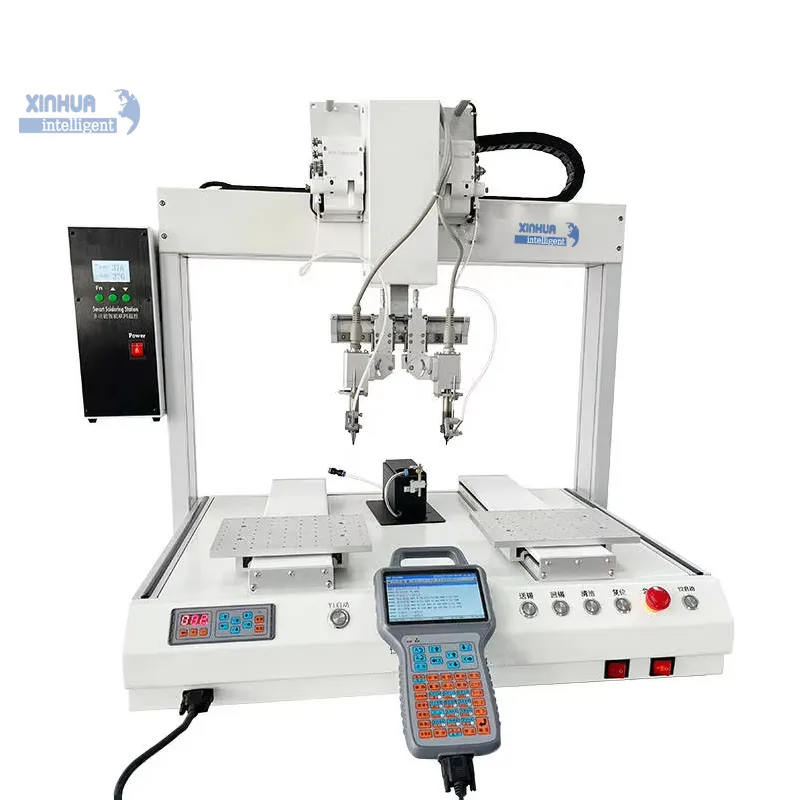A robotic selective soldering machine is used to automatically solder individual wired components onto
printed circuit boards (PCB) with precision and repeatability. It is a crucial piece of equipment in
electronics manufacturing, offering advantages over manual soldering and other automated methods like
wave soldering.

Key Functions
- Targeted Soldering: Focuses on specific areas or components on a PCB, unlike wave soldering which solders the entire board.
- Component Handling: Handles a variety of through-hole components (e.g., IC, chips, LED) with precise temperature control.
- Automated Process: Uses robotic motion to position the soldering head and apply solder to the designated areas.
- Flexibility and Precision: Accommodates components of varying heights and angled soldering while ensuring consistent, reliable joints.
- Improved Quality and Reliability: Precise process control reduces defects, minimizes thermal stress on sensitive parts, and enhances overall product quality.
Why Selective Soldering Is Used
- Higher Quality Joints: Produces more reliable and consistent solder joints than manual or wave soldering.
- Reduced Defects: Automation minimizes human error, improves repeatability, and reduces rework.
- Cost Efficiency: Lowers material waste, rework, and labor costs over time.
- Handles Complex Designs: Suitable for mixed-technology, high-density PCB.
- Adaptable to Different Technologies: Works with various PCB surface finishes and solder types, including lead-free options.
Summary
Robotic selective soldering machines are vital tools for modern electronics manufacturing, enabling the production of high-quality, reliable PCB with greater efficiency and reduced costs.



